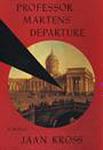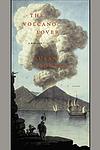The Greatest "Historical fiction, History, Fiction" Books Since 1980
Click to learn how this list is calculated.
This list represents a comprehensive and trusted collection of the greatest books. Developed through a specialized algorithm, it brings together 300 'best of' book lists to form a definitive guide to the world's most acclaimed books. For those interested in how these books are chosen, additional details can be found on the rankings page.
Genres
Historical fiction is a genre of literature that combines fictional stories with real historical events, settings, and characters. These books often take place in a specific time period and are based on research and factual information, but also include imaginative elements to create a compelling narrative. Historical fiction allows readers to experience the past in a unique and engaging way, while also providing insight into the social, cultural, and political issues of the time.
The category of "History" in books refers to the study and interpretation of past events, societies, and cultures. It encompasses a wide range of topics, including political, social, economic, and cultural developments, as well as the lives of individuals and groups who have shaped the course of history. History books can be written from various perspectives and may focus on specific time periods, regions, or themes. They aim to provide readers with a deeper understanding of the past and its impact on the present.
Countries
Date Range
Reading Statistics
Click the button below to see how many of these books you've read!
Download
If you're interested in downloading this list as a CSV file for use in a spreadsheet application, you can easily do so by clicking the button below. Please note that to ensure a manageable file size and faster download, the CSV will include details for only the first 500 books.
Download-
1. Life and Fate by Vasily Grossman
"Life and Fate" is a sweeping epic that explores the human condition during the Siege of Stalingrad in World War II. The novel delves into the lives of a wide range of characters, from soldiers and scientists to children and victims of the Holocaust, providing a stark and unflinching portrayal of the horrors of war, the brutality of totalitarianism, and the resilience of the human spirit. At the same time, it also examines themes of love, loss, and the struggle for freedom and dignity in the face of overwhelming adversity.
-
2. Professor Martens' Departure by Jaan Kross
"Professor Martens' Departure" is a historical fiction novel that chronicles the life of a real-life international law professor from Estonia. The story is set during the period of the Russian Revolution and World War I, and follows the protagonist as he navigates the political turmoil of the time. The narrative explores themes of personal integrity, professional ethics, and the struggle to maintain one's principles in the face of political pressure and personal ambition.
-
3. Fantasia: An Algerian Cavalcade by Assia Djebar
"Fantasia: An Algerian Cavalcade" is a multifaceted novel that intertwines personal narratives with the history of Algeria's resistance against French colonialism. Through a blend of autobiography, historical documentation, and fictional reimaginings, the book explores the complex layers of identity, memory, and struggle from the perspective of Algerian women. The narrative shifts across time, recounting both the 19th-century French invasion and the 20th-century war for independence, while delving into the author's own experiences and the broader cultural and linguistic challenges faced by Algerian society. The novel stands out for its poetic style and its innovative use of language to capture the voices of those often silenced in historical discourse.
-
4. Measuring the World by Daniel Kehlmann
"Measuring the World" is a historical novel that reimagines the lives of two brilliant and driven men, German mathematician Carl Friedrich Gauss and German geographer Alexander von Humboldt. The narrative alternates between the two protagonists, exploring their individual quests to quantify and understand the world. Gauss, a child prodigy from a poor family, rises to become one of the greatest mathematicians in history, while Humboldt, a wealthy and ambitious explorer, embarks on a five-year journey across South America. Their paths converge in a humorous and touching manner, highlighting the contrast between their approaches to knowledge and discovery.
-
5. Leo Africanus by Amin Maalouf
This historical novel follows the life of a real-life Andalusian-born traveler of the 16th century, who is captured by Christian pirates and presented as a gift to the Pope. Renamed after the pontiff, he becomes a respected scholar and diplomat, navigating the complex cultural and religious divides of the Mediterranean world. Throughout his journeys, which take him from his birthplace in Granada to Fez, Timbuktu, Constantinople, and Rome, he witnesses the tumultuous events of his time, including the fall of Granada and the rise of the Ottoman Empire. His story is one of identity, belonging, and the universal quest for knowledge and understanding amidst a backdrop of conflict and change.
-
6. The Lost Painting by Jonathan Harr
"The Lost Painting" tells the story of a lost masterpiece by Italian Baroque artist Caravaggio, titled "The Taking of Christ." The book follows the journey of a young art historian, Francesca Cappelletti, as she sets out to uncover the painting's whereabouts. Along the way, she encounters a cast of characters including art dealers, art historians, and even a mafia boss. Through meticulous research and a bit of luck, Cappelletti finally locates the painting in a Dublin Jesuit house, where it had been hanging for centuries, unrecognized as a Caravaggio. The book is a captivating tale of art history, detective work, and the power of obsession.
-
7. The Volcano Lover by Susan Sontag
"The Volcano Lover" is a historical novel set in the 18th century, revolving around the love triangle between Sir William Hamilton, his wife Emma Hamilton, and the naval hero Admiral Horatio Nelson. The narrative delves into the complexities of their relationships against the backdrop of the tumultuous political and social landscape of the time, including the eruption of Mount Vesuvius, the Neapolitan court, and the Napoleonic Wars. The book weaves a rich tapestry of passion, power, and the arts, exploring themes of obsession, the nature of heroism, and the impact of historical events on personal lives.
-
8. War And Turpentine by Stefan Hertmans
"War and Turpentine" by Stefan Hertmans is a historical novel that follows the life of the author's grandfather, Urbain Martien, who lived through both World War I and II. The book is divided into three parts: Urbain's childhood in poverty-stricken Belgium, his experiences as a soldier in WWI, and his life as a struggling artist after the war. The novel explores themes of love, loss, and the impact of war on individuals and society. Through Martien's story, Hertmans paints a vivid picture of a bygone era and the struggles faced by those who lived through it.
Reading Statistics
Click the button below to see how many of these books you've read!
Download
If you're interested in downloading this list as a CSV file for use in a spreadsheet application, you can easily do so by clicking the button below. Please note that to ensure a manageable file size and faster download, the CSV will include details for only the first 500 books.
Download






